Curriculum HighScope™
Children learn best by exploring and doing! There is no better curriculum to support them than HighScope™! This researched based curriculum was developed by Dr. David Weikart and influenced by the famed child psychologist Jean Piaget. HighScope™ expresses Dr. Weikart’s goals for children to have high aspirations and a broad scope of interests. "Active Learning" is its core principle: a learn-by-doing or hands-on approach. Children learn through play and are helped by supportive teachers.
While HighScope™ may become increasingly structured as children age, the core elements do not change:
- We set the stage for learning by offering a variety of materials and experiences appropriate to each age group. Some content areas include creative arts, dramatic or pretend play, social/emotional and physical development, science and technology, and language. Teachers create a safe place for purposeful play and personal care routines.
- Teachers facilitate learning through individualized engagement and asking challenging questions. They also help children plan and make decisions.
- To assess children's learning and to create meaningful learning plans, we use HighScope's™ Developmental Domains and the CDC's Milestones. Teachers document each child's learning through photos, work samples, and anecdotal notes.
-
- Open communication builds a strong bridge between teachers and parents. We use a simple, secure, app-based platform, ProCare Connect™, to send messages, photos, and videos throughout the day. From diaper changes to building rocket ships, families know in real-time what's happening!
- Besides digital communication, there is always time for impromptu meetings, parent orientations, and parent-teacher conferences.
-
- Getting "ready for school" starts in our Infant Program and culminates in Pre-Kindergarten. Think of it as a layering process, with one skill built on another and then another. The HighScope™ approach to early learning produces results! The feedback we receive from public and private school teachers is that our "graduates" possess more advanced language and literacy skills, better early math skills, more emotional health and social competence, and more general knowledge and cognitive skills.
Curriculum HighScope™
Children learn best by exploring and doing! There is no better curriculum to support them than HighScope™! This researched based curriculum was developed by Dr. David Weikart and influenced by the famed child psychologist Jean Piaget. HighScope™ expresses Dr. Weikart’s goals for children to have high aspirations and a broad scope of interests. "Active Learning" is its core principle: a learn-by-doing or hands-on approach. Children learn through play and are helped by supportive teachers.
While HighScope™ may become increasingly structured as children age, the core elements do not change:
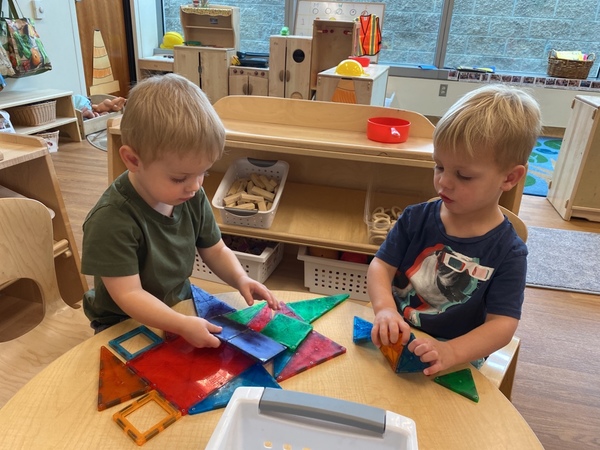
- We set the stage for learning by offering a variety of materials and experiences appropriate to each age group. Some content areas include creative arts, dramatic or pretend play, social/emotional and physical development, science and technology, and language. Teachers create a safe place for purposeful play and personal care routines.
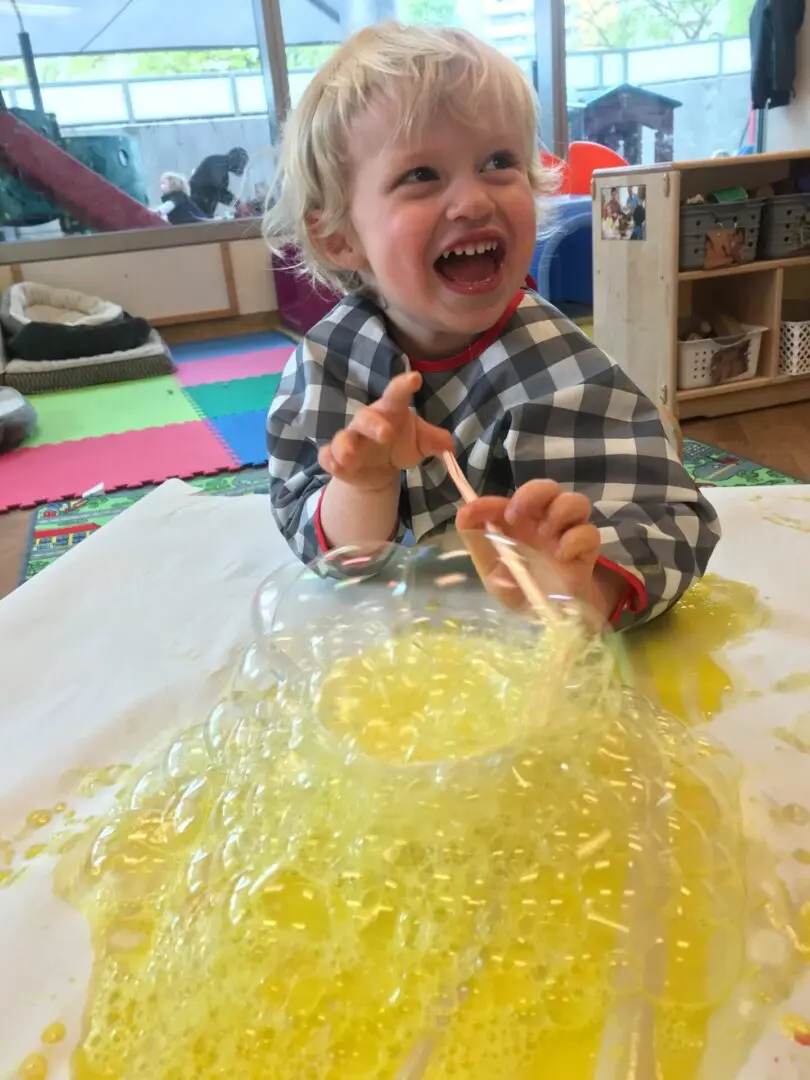
- Teachers facilitate learning through individualized engagement and asking challenging questions. They also help children plan and make decisions.
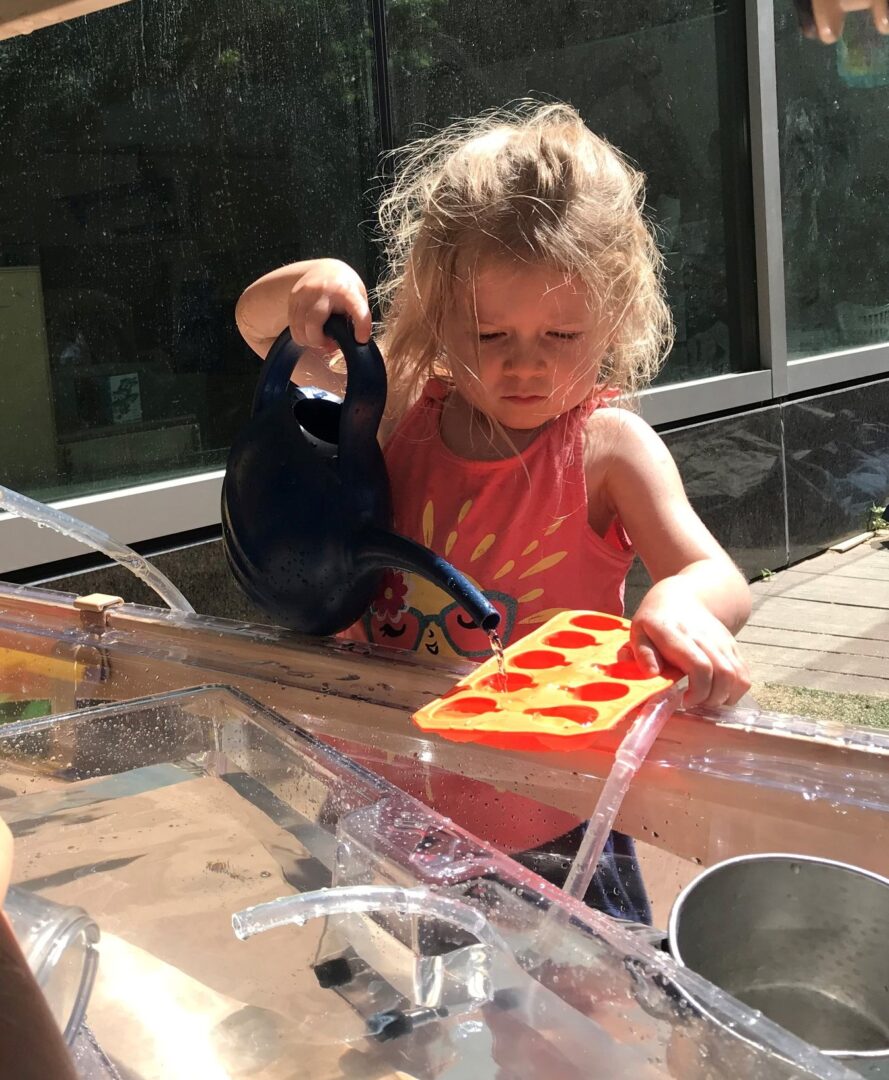
- To assess children's learning and to create meaningful learning plans, we use HighScope's™ Developmental Domains and the CDC's Milestones. Teachers document each child's learning through photos, work samples, and anecdotal notes.
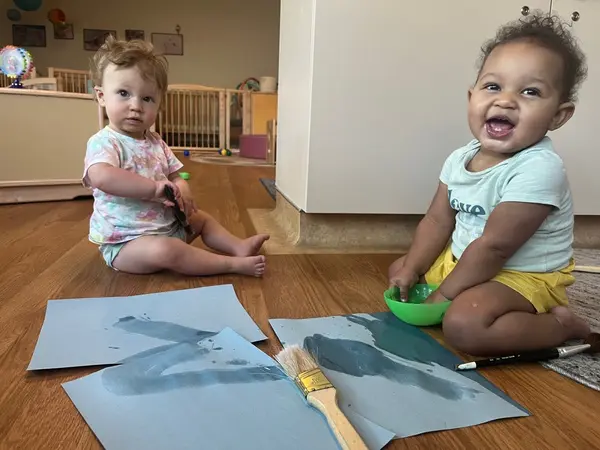
-
- Open communication builds a strong bridge between teachers and parents. We use a simple, secure, app-based platform, ProCare Connect™, to send messages, photos, and videos throughout the day. From diaper changes to building rocket ships, families know in real-time what's happening!
- Besides digital communication, there is always time for impromptu meetings, parent orientations, and parent-teacher conferences.

-
- Getting "ready for school" starts in our Infant Program and culminates in Pre-Kindergarten. Think of it as a layering process, with one skill built on another and then another. The HighScope™ approach to early learning produces results! The feedback we receive from public and private school teachers is that our "graduates" possess more advanced language and literacy skills, better early math skills, more emotional health and social competence, and more general knowledge and cognitive skills.
Conscious Discipline™
To augment the HighScope™ curriculum, we use a social-emotional and classroom management approach known as Conscious Discipline™. Developed by Dr. Becky Bailey, it helps to complete our vision that "All children are nurtured to be socially competent and curious, confident learners throughout life". The focus of Conscious Discipline™ is to help children manage emotional situations and conflicts using strategies for self-control and self-regulation. Some techniques include controlled breathing, calming words, and ongoing routines/rituals that create a strong sense of community and belonging. When children are upset, their vision may be cloudy, unfocused, and sometimes not in tune with reality. Through Conscious Discipline™ techniques, a child's brain state becomes more aware and more conscious of all events; this leads to better understanding and better behavior choices. Awareness or consciousness is the key to emotional mastery.
For infants, healthy brain development is first and foremost. Four components of Conscious Discipline™ foster this. Infants are Seen, Soothed, Made to Feel Safe, and Stimulated.
For toddlers, preschoolers and pre-kindergarteners, we give children tools to learn what to do instead of what not to do. Conscious Discipline™ takes the approach that every negative behavior can be a learning experience. We work on the Seven Skills of Discipline: Composure, Encouragement, Assertiveness, Choice, Empathy, Positive Intent, and Consequences.
Our concept of a School Family flows from Conscious Discipline™. We strive to create a sense of belonging and a place that is safe for everyone to learn, grow and thrive together.
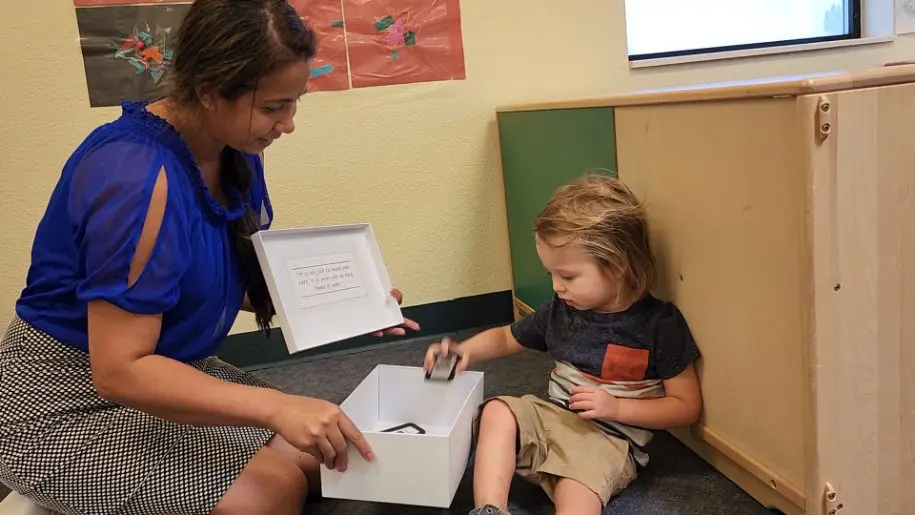
Quality Assurance
We focus on three areas to guarantee quality:
- We take pride in our successes, and it is important to us that we continue to meet best practices. To ensure this, we conduct regular internal and external observations and assessments of our programs. Internally, we complete "Elements of the Day" forms to provide a program check.
For external assessment of our program, we've selected two internationally recognized tools:
- The Infant and Toddler Environment Rating Scale - ITERS™
- The Early Childhood Environment Rating Scale - ECERS™
ITERS™ and ECERS™ consist of about forty items, scored from 1 to 7. The categories are: Space and Furnishings, Personal Care Routines, Language and Reasoning, Activities, Interactions, Program Structure, and Parent and Staff Relationships. We have outside observers from other ECE programs come in to score us and give feedback.
The National Association for the Education of Young Children (NAEYC) holds the highest standards for quality in early childhood programs in the United States. Colonnade Children's Center has achieved the honor of NAEYC Accreditation many times over with stellar scores. After compiling evidence to demonstrate meeting quality criteria, a national validator visits our school to corroborate it. Only programs that endure this demanding process and meet stringent candidacy requirements, have the true "mark of quality."
Children never stop growing, and neither do we! It is important to us that we stay on top of all new research in early childhood education. We quickly incorporate new state regulations and improved best practices from NAEYC. We believe in professional growth for our staff, so we make sure we provide ongoing training opportunities and support. We will continue to promise that our knowledge and skills will stay current, so we can deliver the best care and education for your child.
